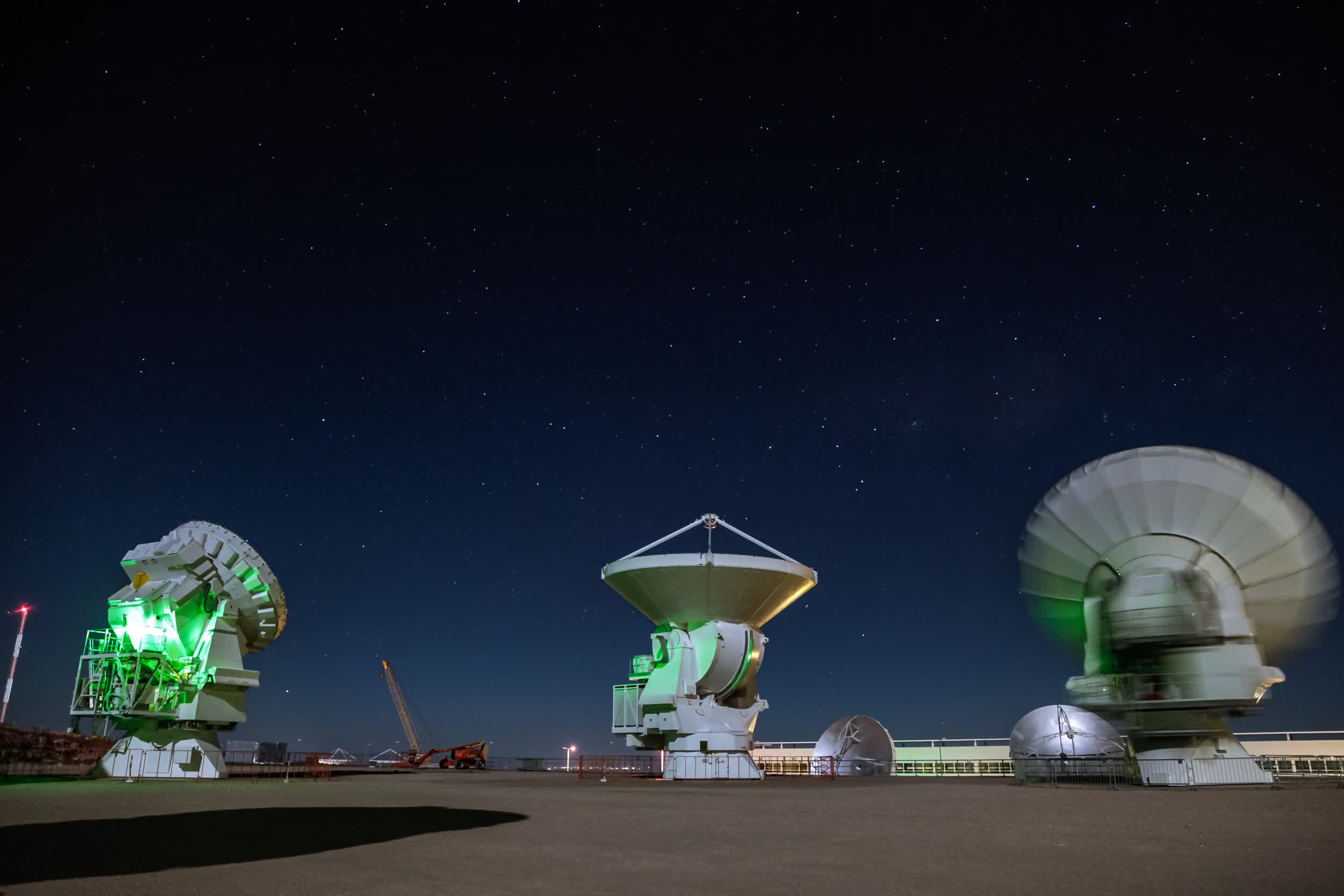
Astronomers may have found signs of life in the atmosphere of Venus
Could the clouds of Venus hold life?
by Shawn KnightIn brief: The first signs of extraterrestrial life could be discovered in a place that scientists have long overlooked - the planet closest to Earth, Venus. The rocky world doesn't seem akin to life considering it is the hottest planet in the solar system, but perhaps life is more resilient than we think?
Astronomers in a paper published in the science journal Nature on Monday said they have identified the apparent presence of phosphine gas in Venus’ atmosphere. This is unusual because, per the paper, any phosphorus in this region should be in oxidized forms.
The James Clerk Maxwell Telescope and the Atacama Large Millimeter Array in Chile were used to detect the gas for which the astronomers have no explanation for.

One possibility, however, is the presence of microbial organisms that can produce it.
Clara Sousa-Silva, a molecular astrophysicist at Harvard University, said that, “as far as we can tell, only life can make phosphine” on small, rocky planets like Venus.
Paul Byrne, a planetary scientist at North Carolina State University in Raleigh, said that while the finding itself is astonishing and that he is skeptical that it points to life, “I don’t have a better explanation for what it is.”
Others in the scientific community are unconvinced as of yet. Gerald Joyce, a biologist at the Salk Institute in California, told The New York Times that the discovery can hardly be taken as a biosignature. “The detection of phosphine is not robust evidence for life, only for anomalous and unexplained chemistry,” he added.
NASA earlier this year selected four finalists for consideration to become full missions later this decade. Two of them involve a closer study of Venus and one specifically, Davinci+, would analyze the planet’s atmosphere to better understand how it was created.
Image credit: Jurik Peter, Chr. Offenberg